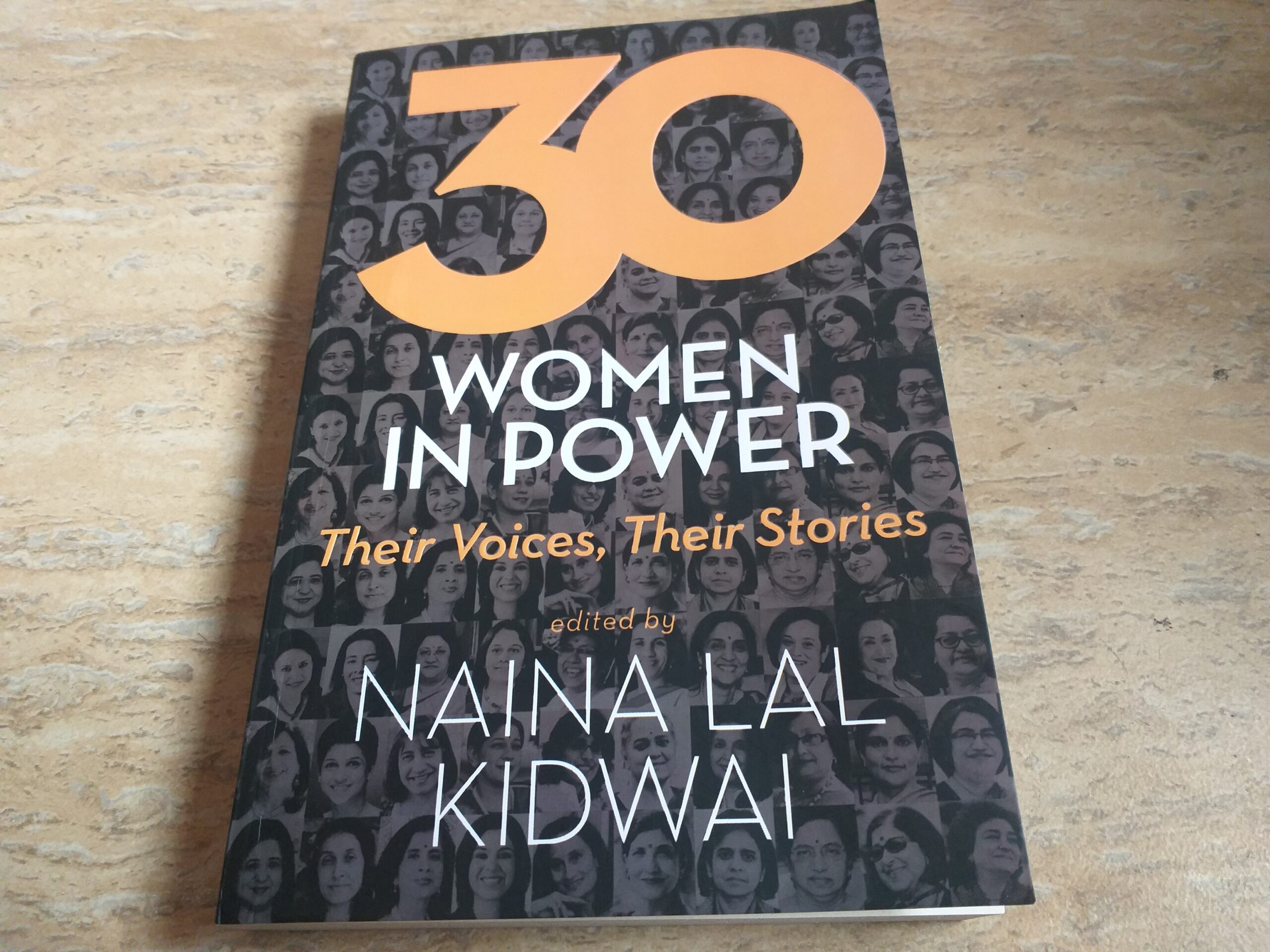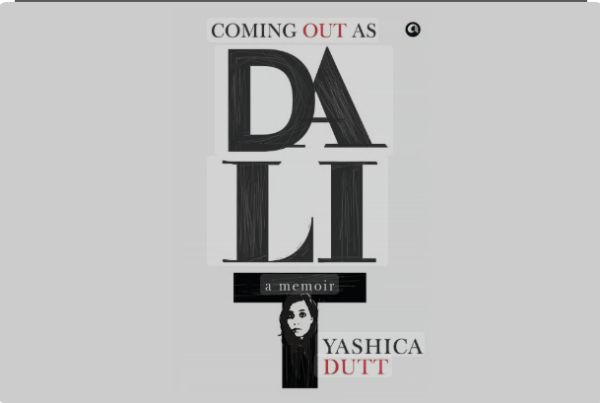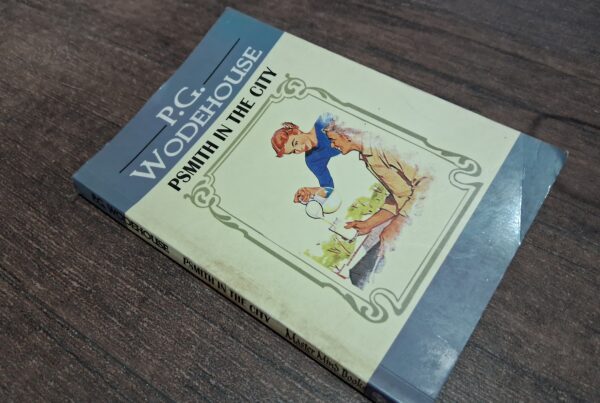Title – 30 Women in Power: Their Voices, Their Stories
Editor – Naina Lal Kidwai
Contributed by women achievers across various domains; and edited skilfully by Naina Lal Kidwai, 30 Women in Power is not just a book but a treasure trove of mantras for a successful career. It’s also a Bible for the countless ambitious women who aspire to break the glass ceiling and seek a guilt-free work-life balance.
This book was published in 2015. As a result, most of the authors have moved on to other roles. However, the values remain the same.
I took my time to savour this book and allowed my feelings to sink in. After all, I was reading thirty inspirational stories of women who haven’t shied away from sharing snippets from their personal lives. As Azim Premji, the then Wipro chairman says – Honest, brave and insightful, 30 Women in Power is a timely reminder that Indian women can achieve tremendous success despite the seemingly insurmountable odds against them.
The women come from professions as varied as law, media, government services, banking sectors, manufacturing, and non-profit ventures. Yet, a common thread runs through them. They were pioneers in their fields and stormed the male bastion. In this book, they answer questions that confront all career women. I’ll break them down and discuss if their privileged backgrounds eased their struggles.
Who is a true leader?
Every author agrees that leaders care about their people, lead from the front, and never give up. They are receptive to feedback from all employees and learn from their mistakes. Mallika Srinivasan, the CEO of Tractors and Farm Equipment Ltd (TAFE), says – It’s only when each employee, down to the last person, is inspired by the leader’s vision, aligns with it and sees a key role for himself or herself, that performances will be exemplary.
Leaders like Roopa Kudva, the CEO of CRISIL, have no egos and are humble enough to learn from their peers. Shobhana Bhartia, the editorial director of Hindustan Times Group, emphasises the importance of constant innovation.
How important is a mentor?
Success doesn’t come overnight. Employees need mentors who can make them achieve their potential. With this book, the authors thank the people who shaped them into what they are today.
Sangeeta Pendurkar, MD of Kellogg India, credits her father as her first mentor, role model, and her biggest critic. Shereen Bhan, a business journalist and news anchor, was fortunate to be taken under the wings of prominent media personalities like Siddharth Basu & Karan Thapar. Mirai Chatterjee joined SEWA (Self Employed Women’s Association of India), inspired by its founder Elaben Bhatt.
Is a work-life balance achievable?
A work-life balance is imperative for any career person. However, in the case of women, it gets amplified. Society still looks at them as caregivers and nurturers. The authors assure the readers that it’s achievable with a proper support system.
Anjali Bansal, MD of Spencer Stuart India, states that finding the perfect work-life balance is not a lone ranger’s game. Arundhati Bhattacharya, Chairperson of State Bank of India (SBI), reiterates the need to learn to set and strictly enforce boundaries; (as) this is the only way to balance the personal and the professional. Using an interesting example, Kirthiga Reddy, MD of Facebook India, writes about how she began to embrace the power of AND versus the tyranny of OR.
Shattering the proverbial glass ceiling
Let’s face it – women have it tough. But shattering the glass ceiling is not impossible. When Meher Pudumjee’s brother died in a freak road accident at 25, newspapers lamented about the demise of Thermax’s future CEO, ignoring the woman who would ultimately become the director of the multinational engineering conglomerate.
Bharti Gupta Ramola, India Markets Leader at PWC, maintains that the glass ceiling does exist, but not quite as an impenetrable rock placed above women’s heads by men. But Vijayalakshmi Iyer, CMD of Bank of India, admits that the only way to the top is to go that extra mile.
We have got our family
All authors attribute their success to their family, be it the parents or the spouse. I feel that most women are not that privileged or lucky to have supportive husbands or in-laws. We live in a patriarchal society where a majority of us are confined to the four walls of a kitchen. But the privilege doesn’t take away the credit of these achievers. I just hope for a future where everyone pitches in to help their spouse, irrespective of gender.
Naila Lal Kidwai, Chairman of HSBC India, quips – I always say, choose your husband with care. Sunita Narain, an environmentalist associated with the Centre for Science & Environment (CSE), owes it to her mother and other women from her generation who showed how much they were able to achieve despite the overwhelming odds stacked against them.
Invest in your me-time, ladies
For a successful and peaceful life, me-time is essential for any employee. But women get consumed by guilt for ignoring their families. The authors nudge us to take care of ourselves in whatever way possible.
Vineeta Rai, an IAS officer, listens to music, while Chanda Kochhar, CEO of ICICI Bank, catches up on Hindi films. These women insist that there is no alternative for me-time.
Conclusion:
I can go on and on, but I’ll stop here. These stories are inspiring, but the stupendous achievements of thirty multifaceted personalities cannot be encompassed in a single book. It’s worthwhile to note that in a country with a population running into 140+ crores, this is just a sample representation. Moreover, most of the authors came from affluent and liberal backgrounds. I’m not undermining their struggles, but they had the cushion most of us do not possess. Women toil in offices, come home to cook meals, and also take leaves to nurse their ailing children.
But a day should come when others tell their stories. Women from marginalised communities, entrepreneurs from the LGBTQIA+ family – all deserve the chance to contribute to another book like this.
I enjoyed reading this book nonetheless. Few workplace issues are seminal, so even men can learn from the authors’ experiences.
PS – I have retained the occupation of the authors when they contributed to this book.




